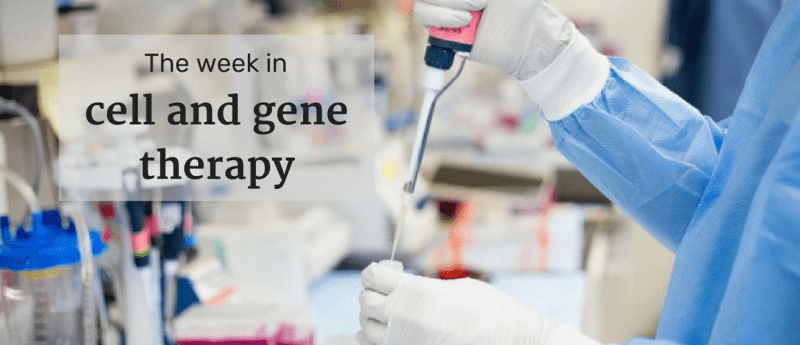Cell therapy weekly: First CAR-T cell clinical trial for cancer kickstarted in New Zealand

This week: A manufacturing collaboration seeks to optimize the cell and gene therapy product supply chain, a novel viral vector improves sickle cell gene therapy delivery and a new cGMP manufacturing facility for iPSC-derived therapies.
The news highlights:
First CAR-T cell cancer trial kickstarted in New Zealand
Collaboration to optimize cell and gene therapy supply chain
Novel viral vector improves sickle cell gene therapy delivery
New cGMP manufacturing facility for iPSC-derived therapies
First CAR-T cell cancer trial kickstarted in New Zealand
In partnership with Wellington Zhaotai Therapies, the Malaghan Institute of Medical Research (both Wellington, New Zealand) has announced the initiation of a Phase I clinical trial — entitled ENABLE — investigating the safety of their novel, ‘third-generation’, CAR-T cell therapy for the treatment of certain types of relapsed and refractory B-cell non-Hodgkin lymphomas. The trial will seek to determine the safety and optimal dose of the potentially curative treatment.
Robert Weinkove, clinical director at the Malaghan Institute, stated: “Because the safety and effectiveness are not yet known, this will be a small trial for a limited number of participants. Nonetheless, this is a very exciting milestone, and we hope the experience and knowledge we gain from the ENABLE trial will help more New Zealanders benefit from CAR T-cell therapies in the future.”
Collaboration to optimize cell and gene therapy supply chain
TrakCel (Cardiff, Wales) and WuXi AppTec Advanced Therapies (PA, USA) have announced their partnership seeking to facilitate seamless advanced therapy delivery. The collaboration will leverage TrakCel’s existing expertise in supply chain software development and the global reach of WuXi AppTec Advanced Therapies to reform challenges that can arise with current technologies, such as software-driven workflows not accounting for established processes in place at each supply chain partner.
Ravi Nalliah, CEO of TrakCel, commented: “The TrakCel partnership with WuXi AppTec Advanced Therapies will enable both companies to move towards increased standardization and improved delivery of these innovative treatments to patients around the world.”
Novel viral vector improves sickle cell gene therapy delivery
National Institutes of Health (MD, USA) researchers have described their creation of a novel viral vector for the delivery of gene therapies to patients with sickle cell disease. In advanced, animal model lab tests, the new and improved vector was found to have a carrying capacity six times greater than that of current vectors and was 10 times more efficient at incorporating gene corrections into patients’ bone marrow stem cells.
Senior study author John Tisdale, Chief of the National Heart, Lung and Blood Institute’s (MD, USA) Cellular and Molecular Therapeutic Branch, stated: “Our new vector is an important breakthrough in the field of gene therapy for sickle cell disease. It’s the new kid on the block and represents a substantial improvement in our ability to produce high capacity, high efficiency vectors for treating this devastating disorder.”
New cGMP manufacturing facility for iPSC-derived therapies
Fate Therapeutics (CA, USA), a clinical-stage biopharmaceutical company, has announced the opening of their new, current good manufacturing process (cGMP)-complaint facility for the production of allogeneic cell therapies yielded from clonal master iPSCs, for the treatment of cancer and immune disorders.
Scott Wolchko, President and CEO of Fate Therapeutics, commented: “With full control of cGMP production, combined with our proven ability to genetically-engineer induced pluripotent stem cells and create clonal master iPSC banks qualified for clinical use, we believe we have established operational capabilities unique to the industry to ensure consistent, large-scale, and cost-effective manufacture of best-in-class off-the-shelf cell products for on-demand delivery to patients.”
For more weekly cell therapy news, read previous editions of the cell therapy weekly.